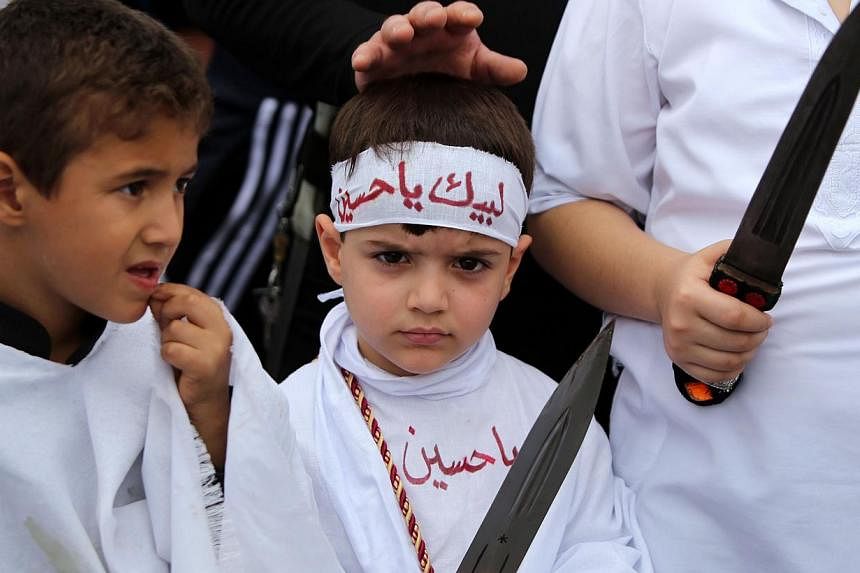KARBALA, Iraq (AFP) - Hundreds of thousands of Shi'ite pilgrims packed the Iraqi shrine city of Karbala on Tuesday, braving the threat of extremist attack to mark one of the holiest days of their faith.
Ashura commemorates the killing of Imam Hussein, the grandson of the Prophet Mohammed, by the army of the Caliph Yazid in 680 AD, the formative event in Shi'ite Islam.
The festival has been marred by attacks by Sunni extremists in previous years but this year's commemorations come with militants of the Islamic State in Iraq and Syria (ISIS) group controlling swathes of Iraq.
Tens of thousands of security personnel and allied militiamen have been deployed to protect the pilgrims in a major test for the new government of Prime Minister Haidar al-Abadi.
"Hundreds of thousands of pilgrims from all the Iraqi provinces and from Arab and foreign states arrived in Karbala to take part in the commemoration of the martyrdom of Imam Hussein,"said Karbala Governor Aqil al-Turaihi.
Hundreds of men dressed in white robes performed a ritual called "tatbeer," cutting their heads with swords and spears in mourning for the slain imam.
Only a small minority of pilgrims perform the ritual, which leaves faces and white robes stained with blood and has been condemned by some Shi'ite clerics.
Thousands of black-clad pilgrims then gathered to listen to the story of Imam Hussein and the battle in which he died, beating their heads and crying in mourning and guilt.
According to Shi'ite belief, Hussein willingly sacrificed himself in opposition to Yazid's un-Islamic and unjust rule, defying the caliph's army with only a few dozen followers.
The division between what would become the Shi'ite and Sunni faiths began in a dispute over who should succeed Mohammed and was solidified with Hussein's death.
Tens of thousands of people have died in fighting, bombings and executions in Iraq carried out along sectarian lines over the past decade.
Sunni extremists, who consider Shi'ites to be heretics, have killed dozens of pilgrims marking Ashura in past years.
But the danger was heightened this year when ISIS militants swept through much of the country's Sunni Arab heartland north and west of Baghdad and seized territory south of the capital close to the main pilgrimage route.
The group already claimed bombings targeting Shi'ites in Baghdad on Sunday that killed at least 18 people.
Iraq has deployed tens of thousands of security personnel and allied militiamen in Baghdad, along the road to Karbala, and in the shrine city itself to guard against attacks.






